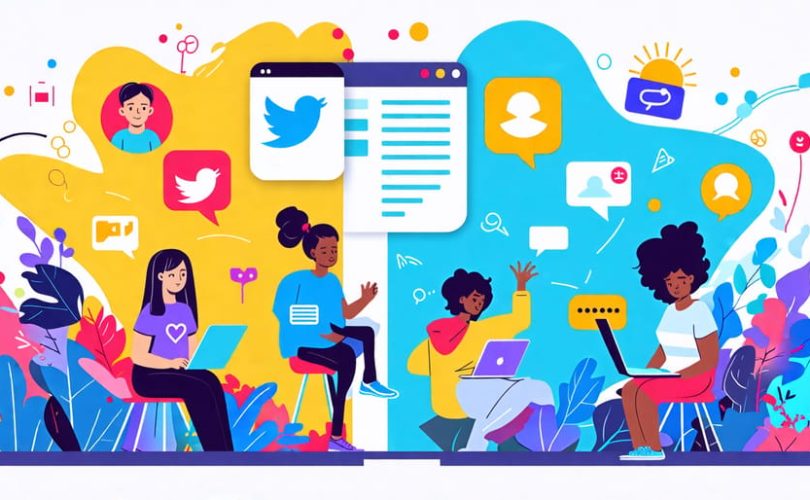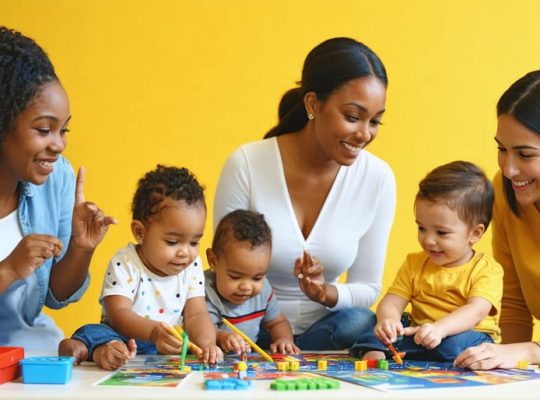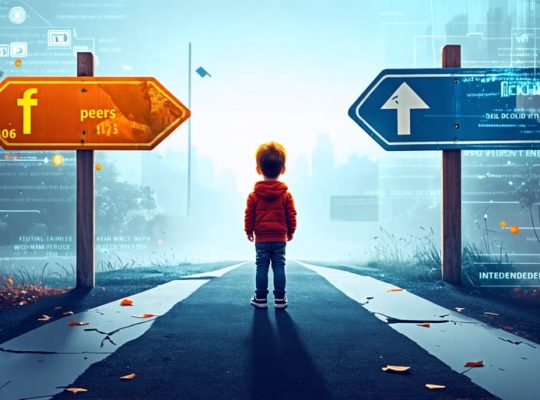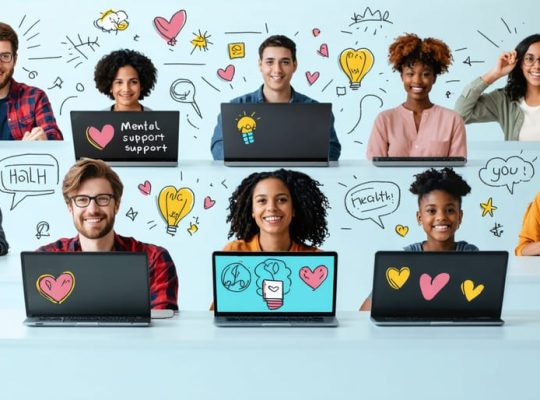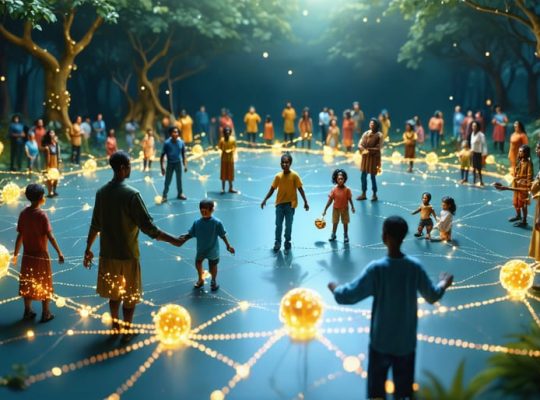Encourage open dialogues with youth about their social media use, highlighting both benefits and potential pitfalls, fostering an environment of trust and understanding. Monitor and limit screen time by setting boundaries that align with developmental needs and ensure a healthy balance between online and offline interactions. Promote positive online behavior, teaching youths to critically evaluate the content they engage with, and encouraging them to cultivate empathy and kindness in digital spaces. Equip young people with coping strategies and resilience skills to handle cyberbullying, reducing its emotional impact and increasing their confidence. Consult with mental health professionals to better understand and address specific concerns, drawing on expert insights to tailor approaches to individual needs.
Positive Effects of Social Media
Fostering Social Connections
Social media can serve as a lifeline for young people, enabling them to maintain and strengthen friendships, particularly when physical distance is a barrier. It offers various platforms where teenagers can share experiences, support each other, and create communities based on common interests or identities. For instance, joining a group related to a favorite hobby can lead to meaningful interactions and friendships that might not have been possible offline. However, while these platforms are full of positive potential, parents and teachers should remain aware of signs that might indicate social media poisoning their child’s mental health. Fostering open communication about online experiences helps navigate both the challenges and joys of social media interactions effectively, ensuring a nurturing environment for growth and connection.

Educational Resources and Learning
Social media, when used thoughtfully, offers a wealth of educational resources and opportunities for learning new skills. Many platforms provide access to tutorials, instructional videos, and expert-led classes, all of which can foster creativity and intellectual growth in young people. For instance, students can explore new interests like coding, art, or music through step-by-step guides available online, which helps them build confidence and competence in areas outside traditional educational settings. Parents and teachers can guide youth in selecting high-quality content, encouraging them to harness social media as a constructive educational tool. Emphasizing positive, skill-building uses can help balance the online experience, supporting young people in navigating the digital world safely and effectively.
Support Networks and Community
Online communities can play a crucial role in providing emotional support and fostering a sense of belonging for young people. Many youth find solace in connecting with peers who understand their unique challenges, often sharing personal stories that resonate. These platforms allow for open dialogue and offer a safe space to express feelings, often easing feelings of isolation. Experts acknowledge the positive impact that inclusive and supportive online interactions can have on mental health, helping build resilience. By engaging thoughtfully, parents and educators can guide youth to benefit from these communities, reinforcing healthy, supportive connections within digital spaces.
Negative Effects of Social Media
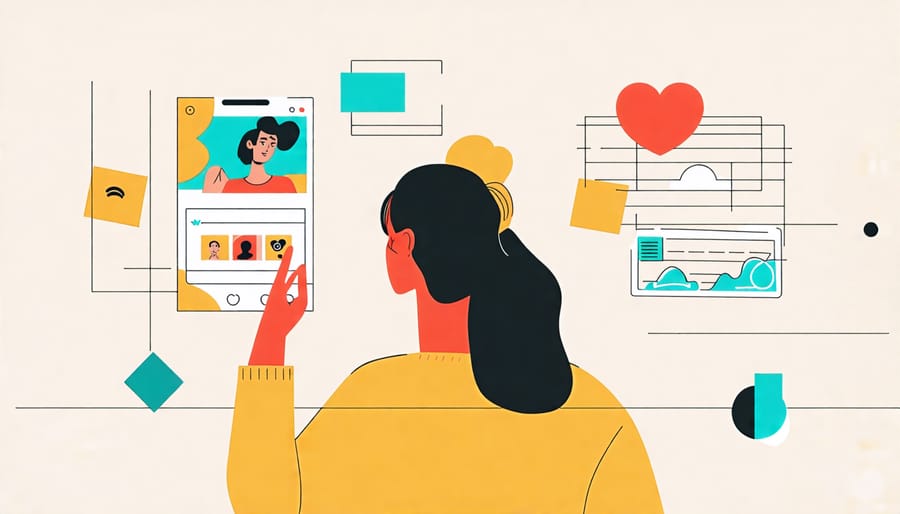
Online Comparison and Self-Esteem
In today’s digital age, social media platforms often serve as a stage where youth compare their lives to curated images of others, impacting their self-esteem. When teens consistently witness peers achieving milestones or presenting seemingly perfect lifestyles, it can create feelings of inadequacy or low self-worth. It’s essential to understand that these online portrayals are typically not a whole picture—they’re highlight reels, often omitting the everyday struggles everyone faces.
Emily, a high school sophomore, shared her story of battling low self-esteem due to social media comparisons. She’d scroll through endless feeds, feeling as if she wasn’t measuring up to her peers, which affected her confidence and happiness. Experts like Dr. Lisa Carter, a child psychologist, emphasize the importance of open dialogues between parents, teachers, and youth. Encouraging young people to focus on their own unique qualities and achievements can help counterbalance the negative effects of online comparisons. Promoting offline activities that foster real-life connections and accomplishments can also greatly enhance self-esteem and overall well-being.
Cyberbullying and Harassment
The rise of social media has brought about an increase in cyberbullying and harassment, posing serious threats to youth mental health. Children and teens, navigating their formative years, can be profoundly affected by negative online interactions. Cyberbullying often involves pervasive and relentless behaviors, such as spreading rumors, making threats, or posting hurtful comments, which can lead to anxiety, depression, and even suicidal thoughts.
Emma, a 14-year-old student, shared her story of how derogatory comments on her social media posts left her feeling isolated and anxious. Her experience underscores the importance of awareness and intervention. It’s crucial for parents and teachers to observe signs like withdrawal from social activities or changes in mood, which may indicate a young person is struggling.
Experts recommend open, non-judgmental communication between adults and children about their online experiences. Developing digital literacy skills and fostering a supportive environment can help youths navigate social media more safely. By understanding and addressing cyberbullying, we can better support young people’s mental health in the digital age.
Addiction and Time Management
Excessive use of social media can quickly become addictive, especially for young minds still developing self-regulation skills. Imagine a teen spending hours scrolling through their feed instead of engaging in face-to-face interactions or hobbies. This not only steals precious time but also can create an unhealthy dependency, leading to issues like anxiety or depression when offline. As one concerned parent shared, their child was missing homework deadlines and family dinners because their smartphone felt like a lifeline. Experts suggest creating a balanced schedule to help youths use social media mindfully, encouraging activities that promote real-world connections and personal growth.
Balancing Social Media Use for Better Mental Health
Setting Healthy Boundaries
Encouraging young people to set healthy boundaries with social media can be transformative for their mental health. Start by engaging in open conversations that make room for them to express their experiences and feelings. Teach them to recognize when their social media use may be affecting their mood or self-esteem. Suggest practical steps like allocating specific times for social media and encouraging device-free moments during meals or before bedtime. Involve them in activities that foster real-world connections and interests. By modeling balanced social media habits yourself, you can provide a positive example. Remember, the goal is to empower them with the skills to navigate social media mindfully.
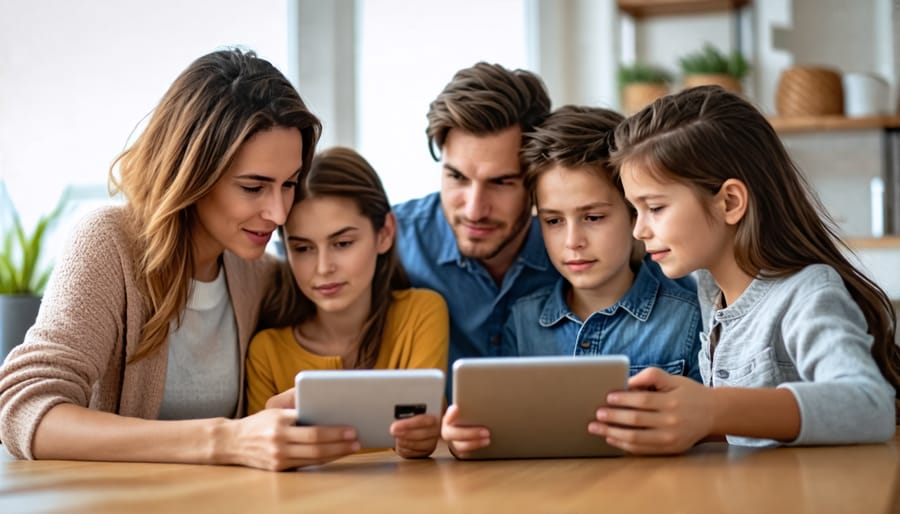
Encouraging Offline Activities
Encouraging offline activities can play a crucial role in supporting the mental well-being of young people. Engaging in hobbies like sports, arts, or simply spending time in nature offers numerous benefits. These activities help build social connections, boost self-esteem, and provide opportunities for emotional expression. For example, a young person might find a creative outlet through painting, which can become a soothing escape from online pressures. Similarly, team sports not only promote physical health but also foster a sense of belonging and teamwork. By nurturing offline interests, parents and educators can offer youths safe spaces and moments of joy that enrich their mental health.
Parental Guidance and Monitoring
Parents play a crucial role in guiding their children through the digital landscape. Encouraging open conversations about social media can help children feel comfortable sharing their experiences. It’s important to set boundaries and establish rules together, tailoring them to your child’s maturity level. Be aware of what platforms your child is using and understand how they work. Monitoring should be balanced—protective yet not intrusive—to foster trust. Educating children about online safety and the differences between virtual and real-world interactions is key. Additionally, it’s worth exploring how elements such as a child’s diet’s impact can also play a role in their mental health. By offering empathy and guidance, parents can help navigate the challenges and benefits that social media brings to youth mental well-being.
Conclusion
In conclusion, navigating the complex relationship between social media and youth mental health requires a thoughtful approach. It’s essential for parents, teachers, and healthcare professionals to recognize both the positive and negative impacts of social media. On one hand, digital platforms can offer a sense of community and self-expression; on the other, excessive use or negative interactions can lead to anxiety and depression. Balancing these outcomes involves guiding young people towards healthy online habits, ensuring they are equipped with the resilience to handle digital challenges. By fostering open communication, adults can encourage youths to share their online experiences and feelings. Furthermore, incorporating simple strategies into daily routines can nurture mental well-being. Emphasizing the importance of real-world interactions, setting boundaries, and promoting critical thinking about content can help mitigate risks. Let’s work together to create environments that support youth in developing positive, balanced relationships with social media.

